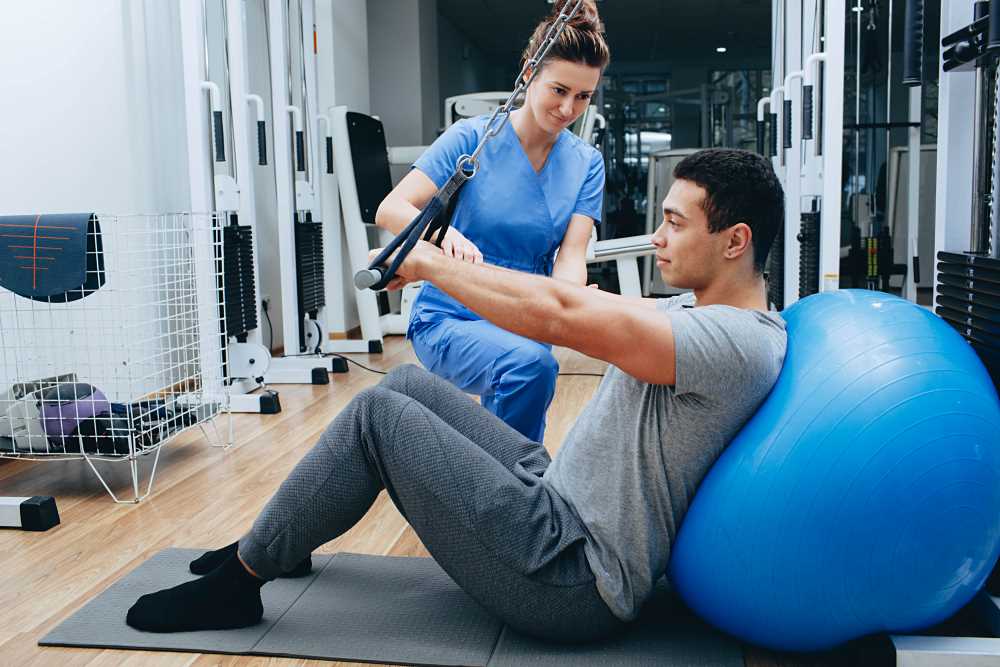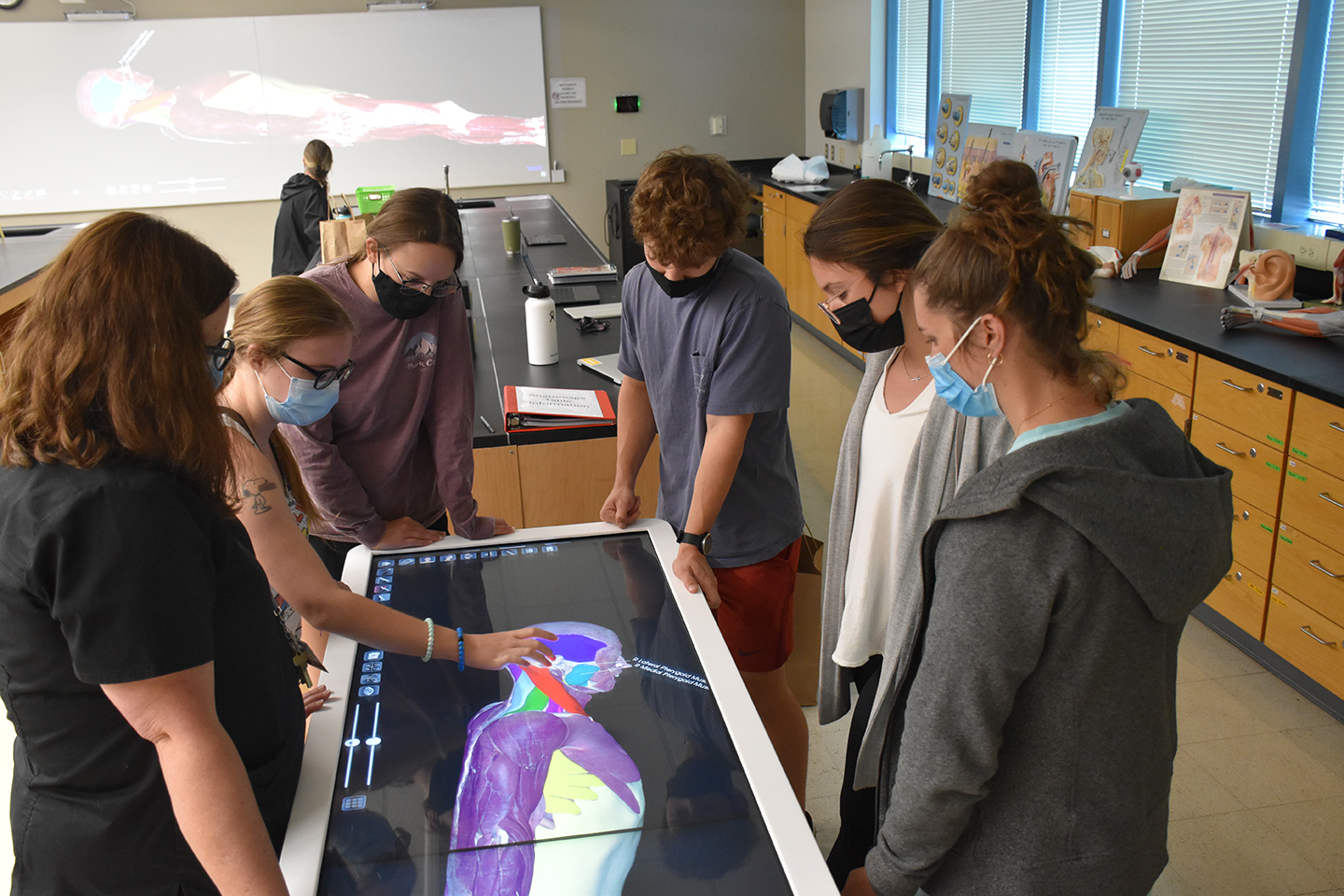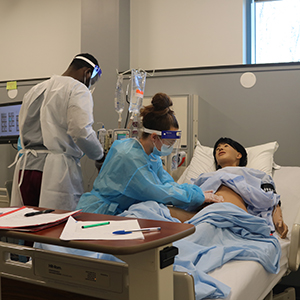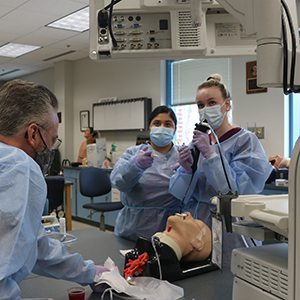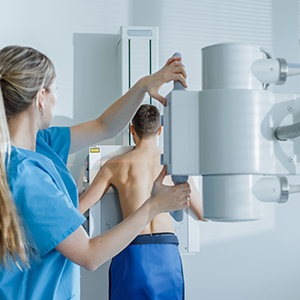Exercise Science Program (Bachelor of Health Science)
Want to pursue a career that helps people improve their health and fitness?
GMercyU's new undergraduate Exercise Science Program prepares students for careers in fitness, sports medicine, rehabilitation, wellness coaching, and other health-related roles. The program focuses on the human body, physical activity, and health.
Thanks to growing awareness of the health benefits of active lifestyles, careers in this field are in demand.
-
12,334
related jobs, 31% higher than the national average for jobs (Lightcast, 2023)
-
49,000
related jobs in Pennsylvania by 2028 (Lightcast, 2023)
-
100%
of full-time undergraduate GMercyU students receive some form of financial aid (excludes second degrees)
Program Details
Interested in health and human performance? Join the growing fields of wellness, rehabilitation, sports medicine, and fitness. GMercyU's new Exercise Science Program spans biomechanics, physiology, nutrition, and health promotion. Through lab-based and practicum courses, you'll gain hands-on experience, equipping you for roles in fitness, sports medicine, rehabilitation, wellness coaching, and more.
As an Exercise Science major at GMercyU, you'll benefit from:
- Our low 10:1 student-to-faculty ratio
- Courses taught by experienced faculty members — no teaching assistants at GMercyU!
- State-of-the-art learning facilities, including our brand-new Exercise Science Lab (see below)
- Real-world experiences in a variety of specialties and settings
- Opportunities for interdisciplinary education and collaboration
- The Griffin Edge, which will help you connect the dots between your GMercyU experiences and your future aspirations, so you can ace future job interviews and launch a successful career in an exciting field!
The Bachelor of Health Science in Exercise Science degree requires the completion of 120 credits, which includes 67 credits of general education courses.
Courses within the Exercise Science major (53 total credits) are designed to provide you with specialized knowledge in topics like kinesiology, exercise physiology, fitness assessment, and strength training. Some courses are lab-based, offering students practical experience in applied exercise science. The program also includes experiential learning opportunities, particularly through practicum experiences.
| PUB 100 | Introduction to Public Health |
| PUB 200 | Health Behavior and Health Education |
| HS 100 | Introduction to Allied Health |
| PUB 240 | Human Disease & Disease Prevention |
| OSC 100 | Introduction to Occupation & Occupational Science |
| OSC 302 | Neuroscience of Occupational Behavior |
| PSY 305 | Health Psychology |
| EXS 200 | Introduction to Exercise Science |
| EXS 250 | Concept of Lifetime Fitness |
| EXS 300 | Kinesiology |
| EXS 300L | Kinesiology Lab |
| EXS 350 | Physiology of Exercise |
| EXS 350L | Physiology of Exercise Lab |
| EXS 360 | First Aid and Athletic Training |
| EXS 370 | Strength Training and Conditioning |
| EXS 370L | Strength Training and Conditioning Lab |
| EXS 390 | Fitness Assessment |
| EXS 390L | Fitness Assessment Lab |
| EXS 450 | Motor Learning |
| EXS 490 | Practicum in Exercise Science |
Here are just a few examples of the types of courses you'll take as an Exercise Science major at GMercyU:
EXS 200: Introduction to Exercise Science
This course provides an introductory exploration into the field of Exercise Science, focusing on the physiological, biomechanical, and psychological foundations of human movement and physical activity. Students will examine the fundamental principles underlying exercise prescription, fitness assessment, and health promotion through physical activity.
EXS 300: Kinesiology
This course provides a comprehensive overview of kinesiology, the scientific study of human movement. Students will explore the principles of biomechanics, anatomy, physiology, and motor behavior that underpin physical activity and exercise. Students will understand how the body moves, how physical activity affects health and performance, and how to apply this knowledge in various contexts, including sports, rehabilitation, and fitness.
EXS 350: Physiology of Exercise
This course explores the acute and chronic physiological responses and adaptations to physical activity and exercise. This course delves into the mechanisms underlying the body's responses to exercise, covering topics such as energy metabolism, cardiovascular and respiratory function, neuromuscular physiology, and endocrine responses. Students will examine the principles of training, the impact of environmental factors on performance, and the role of exercise in health and disease prevention.
EXS 370: Strength Training and Conditioning
This course explores the science and application of strength and conditioning principles for enhanc-ing athletic performance. This course covers program design, periodization, resistance training techniques, plyometrics, and speed development. Students will learn to create tailored strength and conditioning programs for various populations, considering factors such as age, sport-specific de-mands, and injury prevention. The role of nutrition in supporting training goals is also explored.
GMercyU Exercise Science majors can take advantage of networking opportunities hosted by the national and regional chapters of the American College of Sports Medicine (ACSM) and National Strength and Conditioning Association (NSCA).
This program employs a holistic and integrated approach to prepare students for careers in athletic training, exercise and personal training, exercise physiology, cardiac rehabilitation, physical and occupational therapy, wellness and health coaching, recreation coordination, sports medicine, health education, health and exercise research, gym management, and more.
Top Jobs for Exercise Science Majors
Athletic Training
Description: According to the National Athletic Trainers' Association, athletic training "encompasses the prevention, examination, diagnosis, treatment and rehabilitation of emergent, acute or chronic injuries and medical conditions. Unlike personal trainers, ATs follow a medical-based education model and are licensed or otherwise regulated in 49 states and the District of Columbia."
Average Salary: The average salary for an athletic trainer in the U.S. is $60,250, with the highest 10% earning more than $84,100.
Job Outlook: Job growth for athletic trainers is projected to increase by 11% through 2034, nearly four times the national average.
Exercise Physiologist
Description: These healthcare professionals provide health education and exercise plans to help patients (which may include athletes) to improve their respiratory, circulatory, and other systems. Some exercise physiologists work directly with primary care physicians, who may refer patients to exercise physiologists for exercise plans.
Average Salary: The average salary for an exercise physiologist in the U.S. is $58,160, with the highest 10% earning more than $79,830.
Job Outlook: Job growth for exercise physiologists is projected to increase by 9% through 2034, more than twice the national average.
More career pathways include:
- Exercise and Personal Training
- Cardiac rehabilitation
- Physical or Occupational Therapy
- Wellness and Health Coaching
- Recreation Coordinator
- Health Education
- Sport Scientist
- Health and Exercise Research
Students who complete this degree are prepared for further study and training, often by attending graduate school to earn a master’s or doctoral degree in areas such as:
- Athletic Training
- Nursing
- Physical Therapy
- Physician Assistant
- Occupational Therapy
- Orthotics and Prosthetics
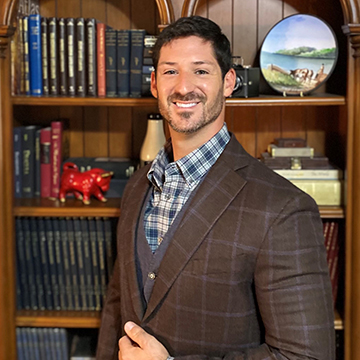 Colin G. Pennington, PhD
Colin G. Pennington, PhD
Position: Exercise Science Program Director
Did You Know? Dr. Pennington is a former coach and physical educator as well as a certified personal trainer. His research focuses on socialization in kinesiology, physical education teacher training, advancing movement opportunities for individuals with disabilities, and advocating for health and wellness.
Read bio
The Exercise Science Lab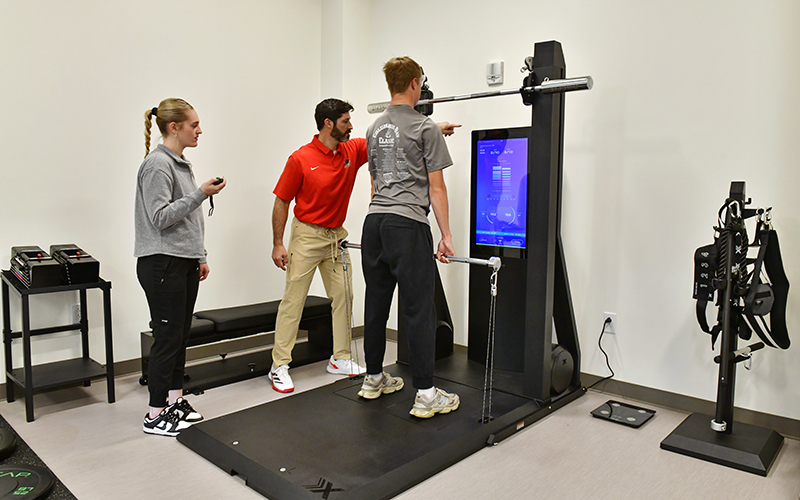
Housed in GMercyU’s new Frances M. Maguire '55 Healthcare Innovation Center, the Exercise Science Lab features the advanced technology and tools you need to gain hands-on experience assessing and optimizing human performance, with more to come as we continue to enhance the space.
The lab features:
- OXEfit XS1 AI-Powered Training System
- Anthropometric Measurement Tools
- Body Composition Analysis Tools
- Force Measurement and Biomechanics Tools
- Exercise Equipment for Specialized Testing
- Wearable Fitness Technology
- Data Analytics and Software
- Velocity-Based Training (VBT) Systems
- More on the way!
Students also use the Athletics Department's Strength & Conditioning and Athletic Training Facilities.
Scholarships
GMercyU offers dozens of scholarships and grants to help you get a great education at an affordable cost. They do not need to be repaid and generally are renewable each year.
Transfer to the Program
GMercyU grants up to 90 qualifying credits toward a bachelor's degree and offers renewable transfer scholarships and grants ranging from $11,000 to $21,000 a year.
